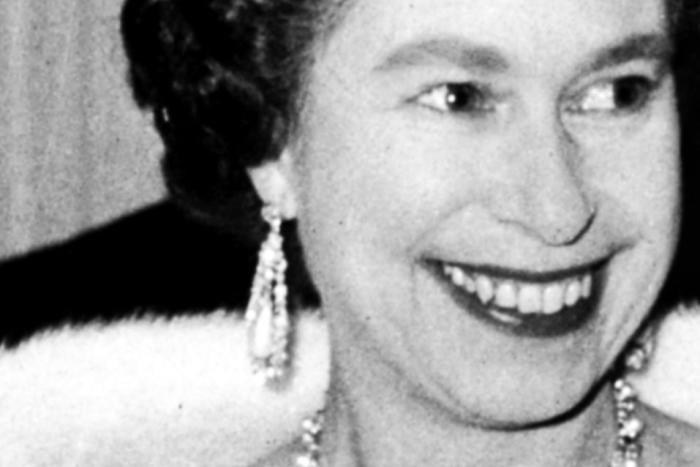Last month, Nicole Cliffe—unapologetic Canadian and co-editor of literary/humour/miscellany site The Toast—published a list of “Every Canadian Novel Ever.” One-line summaries like “Will the Cod Return, Or Must We Move to Toronto?” and “The Cry of the Loon Echoes the Cry of My Heart Which is as Stony as the Land I Attempt to Till” are ribbings based in love; you can’t poke fun at a genre unless you know it well.
It’s maybe not possible—or necessary—to sum up the artistic output of an entire country with a few descriptors, but there are those unspoken-yet-identifiable qualities that make Canadian Literature more than literature from Canada. Tensions between city life and rural life. Tough winters, tougher resolves. Self-reflection in spades. Sometimes bear sex, but that’s not mandatory.
Sweetland by Michael Crummey fits within the Canadian literary tradition, but, like all the good books, it does so on its own terms. Its synopsis—“Old Man Who Is All That’s Left of His Newfoundland Community Tries to Survive Winter”—could have made The Toast’s list, though of course it’s more than that. Residents of a small Newfoundland outport (that is, an isolated coastal community) are offered financial incentives from the government to leave the island. This resettlement, a practice with a long and controversial history in Newfoundland, dating back to the 1950s. Though the inhabitants in Crummey’s novel have lived together, generation after generation, for 200 years, most are willing to pack up and leave. The one holdout is 69-year-old Moses Sweetland, who gives in to the deal after receiving anonymous threats, then decides to fake his death and live on the island alone. His brittleness and tenacity play out as funny as often as they do heartbreaking.
Crummey was born in Newfoundland in 1965. He started writing poetry as an undergrad at Memorial University, publishing several collections before releasing his first novel, River Thieves, in 2001. His prose is imbued with a lyricism that reveals his poetic past and adds an unsentimental beauty to passages about, yes, gutting cod. In person, he is soft-spoken and affable, prone to speaking in well-considered complete sentences, yet quick to joke and laugh. Before we started our interview at Hazlitt's Random House offices, we were interrupted several times by those passing by, with excited declarations of, “Hey, Michael’s here!” Very quickly, we were forced to close the door in order to proceed with the interview.
I'm nervous about interviewing you, because of that one line in the book where Sweetland is reading a book about Newfoundland that has been blurbed and praised by a Toronto critic. Sweetland can’t stand the book, and he says the writer doesn’t know his…
Arse from a dory. [Laughs]
And I don't know arses from dories! I'm letting you know that up front. I've been to Newfoundland once—
When was that?
Long ago. I was a kid.
Did you go to Gros Morne?
Sweetland's not talking about the reviewer. He's talking about the actual book and its writer. In an earlier version of Sweetland,the book was [Crummey’s 2009 novel] Galore. That's me he's talking to.
Tell me about the real events that inspired Sweetland.
The idea really started for me when I was invited to work as a resource staff for an outfit called Adventure Canada. They do small ship cruises to out-of-the-way places: the Northwest Passage, Greenland, Northern Labrador, Galapagos. For almost 20 years they've been doing a circumnavigation of Newfoundland as well. They work really hard to make it more than just a photo op. They hire resource staff who are experts, for lack of a better term, on the place they're visiting. That includes geologists, biologists, archaeologists, historians, and then musicians, writers, that sort of thing.
I'm not great on ships, and the thought of the trip kind of terrified me. But there are parts of Newfoundland you can only get to by sea, including most of the south coast, which is one of the most spectacular parts of the island. I had never seen it, except in photos. I thought that would be my chance. I went on the trip, and I've done five or six of them now. We've gone to places like Francois and Ramea on the South Coast, and places like Little Bay Islands and Fogo on the East Coast. On every trip, resettlement is a topic of conversation. We're in communities where people are actively investigating their options for getting a government package to leave behind. Some communities, they're 200 years old. I remember hearing stories, probably apocryphal, about communities where everybody had signed to leave except for one person, who was holding up the entire community. I thought, “That would be an interesting setup for a novel.”
These stories that you heard about the one dissenter deciding to stay, did you know any details about those people?
No, I didn't. The whole story's a bit murky. The provincial government was bumping up the amount of money they are willing to offer to people who live in these communities from $100,000 to $270,000 each. They also dealt with this whole issue of how many people have to be on board. They set it at 90 percent. You have to have 90 percent of the community on board. I don't know if there were actual places where that happened. I know one of the first places to do it in contemporary times was called Great Harbour Deep on the Northern peninsula, and there were I think about six or seven dissenters who were not going to sign on. They eventually were bought out. There was a lot of animosity in the process.
Sweetland doesn't want to leave his home, but his home matters to him in large part because of the relationships he’s built. With everyone else leaving, he ends up completely alone, and practically losing his mind. How of much of this idea of home is informed by people and relationships as opposed to simply the location?
My sense of it is it’s the inner play between those two things. The individual, Sweetland, is created by the community around him, and by that community's relationship to the place it exists in. It's true in Newfoundland, and has been up until right now, that communities are connected to the exact location in which they live, which is not true of say, Toronto. You can pick Toronto up and move it a hundred miles one way or the other and it would still be Toronto, more or less. But those communities are so tied to the exact landscape in which they're created, that even taking those same people and moving them somewhere else destroys the sense of community in some ways.
Part of what Sweetland is hanging onto is his connection to the people who have lived there and died there, as [much as] he is to the people that are still living there. He doesn't see a difference. He's just as happy to live in the company of the dead who have come before as he is to live in the company of the people who are still alive.
When he stays behind, he prepares as much as he can, but it's almost as if he's putting a limit on the rest of his life. A time limit: he has until his supplies run out. What do you think he’s looking for?
Part of his lack of prep is due to the fact that he's acting out of anger. He made up his mind that he was going to stay, even though he signed the papers. And the RCMP came along, just to let him know that, you're going to be on that boat, and he makes his decision in haste. After he lets the boat go, his first thought is, “That was a mistake.” And halfway up the hill, when he falls and hits his head, he thinks, "I haven't thought this through."
In my mind, it was never, “I'm just going to stay until the food runs out and then die like a man,” or something like that. It was more, “I'm staying, and whatever it takes to stay here, I'm going to do it. If that means I have to fake my own death, then that's what I'll do.” The difficulties that he gets into are partly a result of the fact that he's acting recklessly and out of anger. It's just a question of how far can he go on what he has?
And in some ways, I think—I was not aware of this at all while I was writing the book—but when I finished, it suddenly became clear to me that the biggest influence on the arc of the book was watching my father live with cancer and then die of cancer. That was about 12 years ago. It's obvious to me now that resettlement is the setup, but the book is really about something else entirely, which is mortality. Which is what these communities are being forced to deal with head-on. I was interested, I guess, in what how we face mortality says about us as people.
I think you can even look at Sweetland and pick up the stages that people are supposed to go through. I was completely unaware of [them], but it was denial, anger, what is it? Grief. Bargaining is in there...
Acceptance.
Yeah. Sweetland is somebody who goes all-in on a bid that he knows, he's gotta know on some level he can’t win. And the reader certainly knows he can’t win. But if I did my job right, then the reader will be pulling for him every step of the way, you know? I thought of him as being a really courageous—foolish, but courageous, almost heroic character. I think all of that comes out of the experience of watching dad deal with that terminal illness.
I expect that all of us, at some point in our lives, reach a moment where the choices are fight or give up. I'd like to be more like Sweetland than I am. Than I'm afraid I am.
To do things on your own terms?
Yeah. And one of the things about Sweetland is he keeps getting up even after the point where part of him thinks, “Getting up is not going to help anything.” There’s one line in the book—there's the sway of things and fighting the sway of things. And then there's the sway of things beyond fighting. And it's almost impossible to tell where that line is. And there is a point where the sensible thing to do is to let go, and I saw that with my father, you know? There was a point where he let go. He could have let go earlier, probably, but I loved him for not.
The book takes a very specific setting and a very specific problem, but it does have those universal undertones of resilience. Fighting against this homogenization of culture.
There’s a danger, always, when talking about outport Newfoundland, of romanticizing the place, and sentimentalizing it, and pointing to it as something not just different than everything else, but better than everything else. I'm really wary of doing that, because I have parents who grew up in those outports and they're not nostalgic about them, you know? They're nostalgic about the people they knew, and the circumstances those people grew up in, and the kinds of difficulties they had to overcome, just to get by. But those circumstances were not great.
I used to worry that the move toward urbanization and the loss of these communities was going to mean homogenization, and Newfoundland was going to be just like everything else. I've decided it’s a useless thing to worry about, because the change is happening anyway. And also because as I've gotten older, and as I've watched my friends raise children, and as I've watched my kids grow up, I've become aware of the fact that even though these kids are growing up in a world where they're raised on the Internet, and 200 American cable channels, and they have the world at their fingertips, you know? Everything is accessible to them—the single biggest influence on them has been us. And when I look at them, what I see is Newfoundlanders. They are still of that place.
It may be possible that somewhere down the line, people who grow up and live in Newfoundland will be exactly like people from everywhere else, I don't know. But that's not something I think you can control, anyway. At the moment, I don't think that's at all true. I think there's something unique about the culture of the place, and that's something that will continue to be true for a while yet, anyway.
What does it mean to be a Newfoundlander today?
I don't know. [Laughs]
You just know it when you see it?
Yeah. I think there's a list that I could give you, but it sounds ridiculous. It doesn't sound that unique, I suppose. There are lots of places where people would claim the same attributes. I think part of the reason that being from Newfoundland implies something unique is because it is still a very isolated place, because it's an island out in the middle of the North Atlantic, and it's like a little petri dish where something a little bit different is cooking than everywhere else. Andy Jones talks about the N Factor, which is the tendency of Newfoundlanders to do everything just slightly differently than people anywhere else in the world. It's not something you can define, so much as something that you notice when you're around people.
It does come across a lot in your fiction, I think. Your stories are all so rooted in Newfoundland and Newfoundland culture. While I was reading Sweetland, I couldn't define what it meant to be a Newfoundlander, but the sense was always there. As an outsider, at least. For someone who has been there once.
And can't remember what part? [Laughs]
Hey! I remember that...it was beautiful. I think. I mean, I'm sure.
That was probably Gros Morne.
Almost definitely.
Just a guess.
I’m 98 percent sure. What is the role of the storyteller today? In the world?
In the world?
Or in Newfoundland.
When I wrote Galore, I was very specifically focusing on the folklore of the place, on the stories that had been passed down through the oral tradition. I have a very strong sense that what makes Newfoundland—this is the answer to the previous question as well—what makes Newfoundland unique, what's different about us, is the stories we have, of what we came from and what we are. It’s an unbelievably rich tradition. I wanted Galore to mirror this weird little circle where Newfoundlanders are the people that created these stories that have been passed down, but now those stories are creating Newfoundlanders. My sense of who I am as a Newfoundlander and what it means to be a Newfoundlander comes from hearing those stories.
The storyteller is the person who is carrying the flame, who makes sure that even though the fishery is gone, and even though some of these outports are gonna disappear, as long as someone is telling those stories, they'll still be there for people to find. They'll still be there to tell people what it means to be from this place.
I think that's the role of the storyteller everywhere, if you want to talk about Canada in general. I remember when I was in university, starting to be a long time ago, how much handwringing there was over, Is there such a thing as a Canadian identity? What does it mean to be Canadian, not American? I think part of the handwringing was due to the fact that storytellers for the country as a whole were in their infancy. We hadn't found enough storytellers yet. And I think that's changing. I have a sense that people don't worry about that nearly as much as they used to. I think it's partly because we have our own stories being told as a country, things that we can point to and say, “There we are. That's who we are.”
Who do see as some of the more influential figures of Canadian literature? Who has been influential to you personally?
Oh, god. All of the obvious ones. I started out writing poetry, so I was a huge Al Purdy fan early on. There's a Newfoundland poet named Al Pitman who was really big. Alden Nowlan. And then there are people like Lorna Crozier. Bronwen Wallace, who lived in Kingston was a big influence. In terms of fiction, I think some of the earliest people I fell in love with—Timothy Findley, I thought was the best thing ever. The Wars and Not Wanted on the Voyage and Famous Last Words. Alice Munro was huge. And recently I've been reading more and more of, um...short story writer. Lived in Paris most of her life.
Oh! Begins with an M. Mav—
Mavis Gallant! Oh, crap.
It's OK. We got there eventually.
Yeah!
I'm going to edit this, so we both sound super sharp.
Beautiful. [Laughs] I think Mavis is the best short story writer in the world. She's—there's no one better. And I could go on and on. There's a lot of Newfoundland writers, contemporaries, who have been huge encouragement too, you know? Reading books like The Colony of Unrequited Dreams and The Story of Bobby O'Malley by Wayne Johnston. People like Lisa Moore, Michael Winter, who I have published with, and to watch them become what they are out in the world has become a phenomenal experience. It's been so gratifying to watch them become that, whatever the hell that is.
I was going to ask this totally loaded question: do you see Sweetland fitting in with that tradition of Canadian literature?
Uh...
You have to say yes, cause otherwise you're just trashing you're own book!
[Laughs]
I can say it though. I'll just work it into the intro. "Sweetland fits into the grand tradition of Canadian literature."
Ok. [Laughs]. Thank you.






